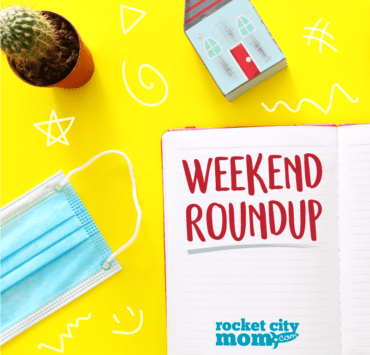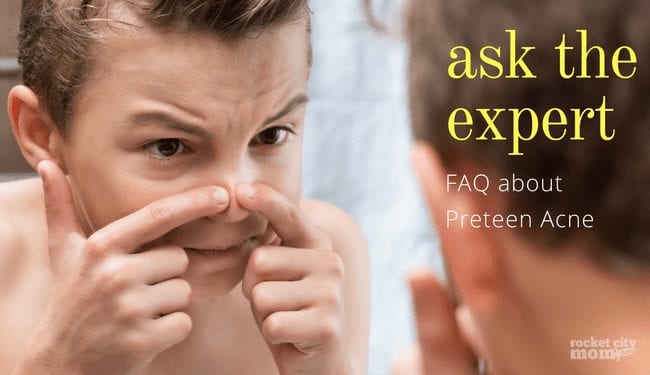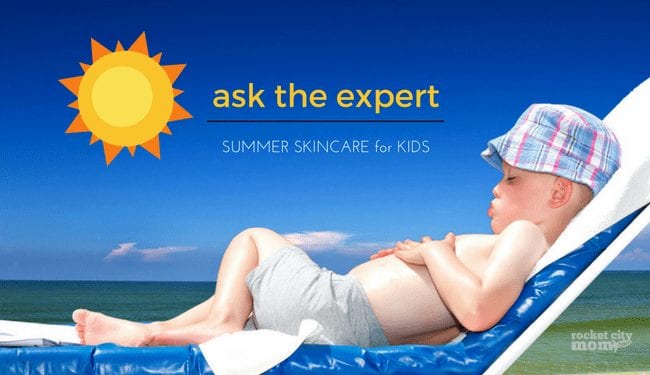Skincare for Babies: Ask the Expert
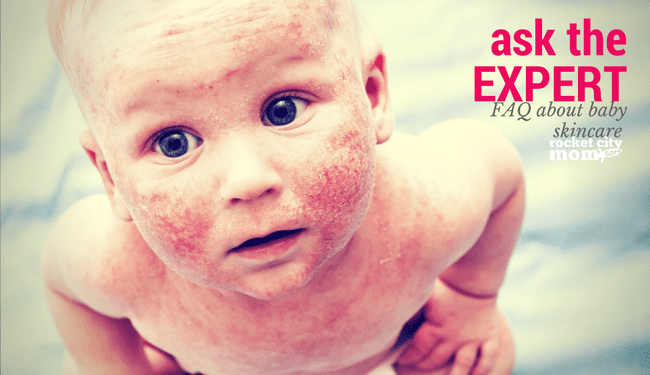
Editor’s Note: From time to time we like to invite local experts from the community to answer questions about parenting and raising kids in Huntsville and North Alabama. Today we asked Dr. Bo Rivera, head dermatologist at Southeastern Skin Cancer & Dermatology, to address reader questions about skincare for babies & toddlers.
We couldn’t have planned a better time to ask Dr. Rivera about baby skin – he’s a brand new dad! RCM Readers asked him about eczema, rashes, best products, and if breast milk can actually help with baby acne.
Q.) My little ones have always struggled with eczema, any suggestions about products to use like creams or soaps? Or products to stay away from?
The best general answer for that is to use mild, fragrance-free, dye-free products. This would include soap such as Dove sensitive or soap-free cleansers, moisturizers and detergents (same for fabric softeners and dryer sheets or just avoid these). Some good over-the-counter brands are CeraVe, Cetaphil, Eucerin, Aveeno and Neutrogena. Any of those brands and others have multiple variations so you want the mildest that they have. Also, creams or ointments are preferred over the lotion forms. So the obvious answer as to what to avoid is harsh, fragranced, or dyed products. Don’t fall into the easy trap of using some concoction from a friend or relative or the newest “fad” that your neighbor sells. Trust us, simple is better and there is no secret fix that is floating around online. When using the moisturizers, use them at least after the bath and even multiple times daily if needed.
Eczema vs psoriasis – what’s the difference, or does one lead to the other? Do you advocate an elimination diet for eczema treatment?
Eczema and psoriasis are two totally different skin conditions. They are, however, very frequently confused by patients and even some non-dermatologists (early cases can appear similar). Neither progresses to or turns into the other since they involve different genetic changes. Psoriasis can not be cured but can be well-treated. Some children can “grow out of” eczema (improve) but might have at least mild sensitive skin throughout life.
Elimination diets should not be the first line of thinking and should rarely be utilized and only at the direction of your dermatologist or allergist. The vast majority of eczema is treated with good skin care habits, avoiding harsh products and moisturizing. In some severe cases, allergy testing can be undertaken but even then not all testing can reveal a relevant allergy. If there is a dramatic link noticed at home to one particular food item then it might be worth discussing with your physician or dermatologist but systematic dietary elimination is not recommended.
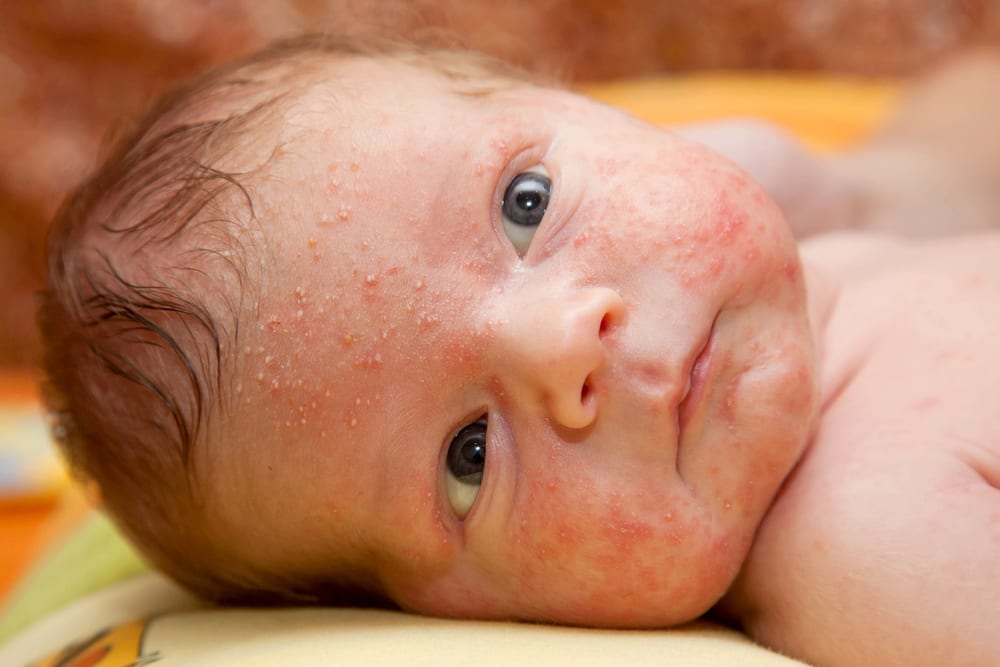
What causes child acne besides dirt? Is this a dietary reaction much like eczema?
Acne is a combination of the skin not appropriately shedding, oil production plugging the pores or causing the skin cells to stick together and sometimes bacterial involvement. Just being dirty does not really cause acne though that is a popular myth (friction from helmets or other rubbing can contribute). Often parents tend to overwash (frequency or aggression) their childrens’ faces or direct the child to do so. If you over-do the cleaning then you can dry the skin out which damages it, causing more oil production and also creating skin breakdown.
Mild cleansers done once or twice daily is all that is usually needed for maintenance. Of course, there are over-the-counter medications and prescriptions that are helpful when appropriate and the acne requires treatment. Also, there have been no dietary links that have been consistently shown to cause acne. The food areas that might show some potential and that are being researched more are skim milk and high glycemic diets. Again, these have not consistently been proven by all studies as a cause at this point. Some people do have individual triggers and in those cases you obviously avoid those items.
Tell me about Keratosis pilarsis! Specifically causes, treatment options, differences between it and acne, and how to recognize it.
Keratosis pilaris (KP) is bumpy/rough or red skin that is commonly seen on the outer arms or upper legs (other areas can be involved). It is a genetic skin variation that can not be cured but it can be controlled or improved. It often has an association with sensitive skin or eczema patients but does not have to. Treatment is usually with mild products and hydrating moisturizers or often a tolerable acid-based moisturizers such as Amlactin over-the-counter. We do sometimes attempt prescription options if needed. For very red KP we can sometimes use an Intense Pulsed Light machine (sometimes incorrectly called a “laser”), such as the one in our office, to reduce the color intensity. Definitely, you want to avoid harsh scrubbing and picking to the areas because it will only lead to more problems and doesn’t really fix anything longterm. Acne is another follicle-based skin condition so there is a little similarity between the two, but it has different causes, associations, treatments (some are the same) and expectations, so are totally different diagnoses.
Are coconut oil and breast milk really the bomb diggity for skin issues?
We’d probably have to say that they are closer to being wack than bomb diggity. Coconut oil can have some beneficial effects in certain circumstances, but typically in those actually needing skin hydration or with rashes already, it can cause more harm than good. So in clinic, we do not recommend using coconut oil and more often need people to stop using it to get better. You certainly do not want to use it for acne, any broken skin or severe rashes.
As for breast milk – there is a study stating that it is equivalent to 1% hyrdrocortisone (which is an over-the-counter topical steroid). So it could have some mild positive effects for VERY mild eczema. However, other studies have shown the opposite – no benefit at all when comparing breast milk and 1% hydrocortisone and there is definitely no benefit of breast milk when compared to even the weakest prescription (stronger than over-the-counter) topical steroids. Most likely, it won’t hurt anything and might slightly help some extremely mild eczema people but certainly not everyone. Usually those who see us as dermatologists are at a severity beyond these type treatment options.
You Might Also Like…
- Ask the Expert: Skincare for Mom, Decade By Decade
- Preteen Acne: When Puberty Smacks You in the Face
- Serious Summer Skincare for Your Family
 ABOUT THE DOCTOR: Dr. Albert E. “Bo” Rivera is a licensed physician and surgeon at Southeastern Skin Cancer & Dermatology, board-certified diplomat of the American Osteopathic College of Dermatology, a fellowship-trained member of the American College of Mohs Surgeons as well as member of several dermatology and medical specialty organizations such as the American Society for Dermatologic Surgery, American Society for Mohs Surgery, American Academy of Dermatology, Skin Cancer Foundation and the Madison County Medical Society. Dr. Rivera also enjoys time with his wife, Stephanie, a daughter who was born in 2015 and their Labradoodle.
ABOUT THE DOCTOR: Dr. Albert E. “Bo” Rivera is a licensed physician and surgeon at Southeastern Skin Cancer & Dermatology, board-certified diplomat of the American Osteopathic College of Dermatology, a fellowship-trained member of the American College of Mohs Surgeons as well as member of several dermatology and medical specialty organizations such as the American Society for Dermatologic Surgery, American Society for Mohs Surgery, American Academy of Dermatology, Skin Cancer Foundation and the Madison County Medical Society. Dr. Rivera also enjoys time with his wife, Stephanie, a daughter who was born in 2015 and their Labradoodle.
This post was originally published in May of 2018 and has been updated.
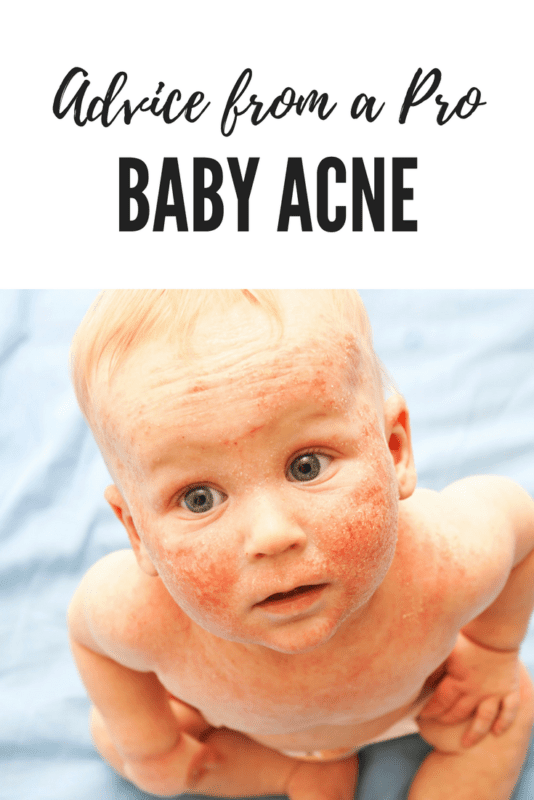
Rocket City Mom is a website about raising children in and around Huntsville, Alabama. Started in late 2010 by a local mom and newcomer to Huntsville, Rocket City Mom has grown into a thriving community of local parents and now boasts a staff of four, thirteen regular contributors, and tens of thousands of Tennessee Valley readers making it the #1 Parenting Resource in North Alabama.



